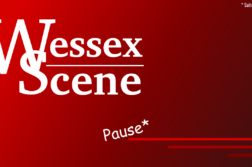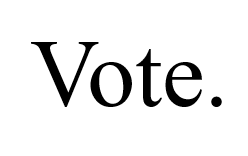When you hear the term ‘working class’, what do you think of? Perhaps an angry flat-capped Brexiter or a mum-of-three living paycheck to paycheck… But not so often do we think of Black and Minority Ethnic (BME) communities. Black and brown people have been painted as classless and the working class identity has been white-washed… But what does this erasure of identity mean?
75% of Britain’s minority communities live in 88 of Britain’s poorest wards (there are 9,456 wards in the UK), yet the ethnic diversity of the working class is all too often overlooked.
Recent headlines like these from The Sun and the Daily Mail cast the white working class as victims of diversity and equality measures, as if minority groups are cutting the queue, yet the same concern is not seen, or even reported, when black students under perform in schools, which are riddled with documented institutional racism.
The segregation of class struggle is not a new phenomenon. The trade unionist movement pushed ahead the rights of white workers while leaving behind black and brown workers. The Grunwick strike was an industrial dispute led by black and brown workers, mostly women of Indian and Pakistani backgrounds, between 1976 and 1978. It was unsuccessful, but the intersection of race, class and gender made it instrumental in putting the spotlight on subjecting South Asian women to unjust labour conditions and discrimination. According to the Trade Union Congress, the Grunwick strikers changed the face of British trade unionism.
The Leave campaign during the lead up to the 2016 referendum was accused of racism and xenophobia. However, since then, there has been no real conversation about this – other than the repetition of ‘not all leave voters are racist’. I think it is high time we do start talking about the increasing underlying racism and bigotry in this country. About how widespread social issues and political disenfranchisement were exploited by nationalists and islamophobes, who framed them as a threat to (white) British culture and identity. About how ‘reasonable concerns over immigration’ are becoming justification for anti-immigrant sentiment and hatred. We must tackle the perceived threat to national identity. The UK will always be a white majority country but “there is no Black in the Union Jack” is an outdated racist lie that we cannot let become legitimate political discourse once again.
More recently, some people say Labour’s defeat in the recent election was because they ‘lost touch with their working class base’. It seems to me that the so-called ‘working class base’ is doublespeak for white voters with no regard for race, throwing black and minority ethnic communities under the bus. There was virtually no talk of racial issues during the election campaign. Black people have been excluded from the conversation in both the political and media establishments and amongst their white voter counterparts.
If I were given a pound every time I heard someone say ‘stop making it about race’, I’d be far less worried about my student loans. At the same time, I’ve also heard white people complain that black people are not allowing them to speak their minds. Excluding us from the conversation, and dismissing or undermining or discounting our perspectives when we do participate, will mean that we have our conversations amongst ourselves. And when you demand to be heard in our conversations without respecting that we are people who can and do experience racialisation, you should not expect to be mollycoddled.
The term ‘white working class’ is designed for alienation and division. Making the majority identity for the UK population exclusionary only serves the purpose of justifying bigotry. White working class has become dangerous shorthand for the real working class.
When we become too afraid to have difficult conversations in good faith on racial topics, it is Britain’s black and minority ethnic communities who ultimately suffer. So, the next time someone refers to the ‘white working class’, I encourage you to ask them ‘what do you mean? And why are you excluding non-white working class people from the conversation?’ Because the truth of the matter is that there is no white working class, only the working class.



